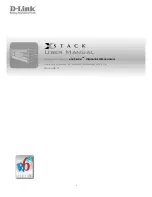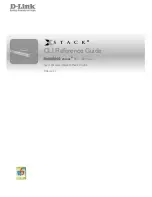
Converting a QSFP or QSFP+ Port to an
SFP or SFP+ Port
You can convert a QSFP or QSFP+ port to an SFP or SFP+ port using the Quad to Small Form Factor
Pluggable Adapter (QSA).
QSA provides smooth connectivity between devices that use Quad Lane Ports (such as the 40 Gigabit
Ethernet adapters) and 10 Gigabit hardware that uses SFP+ based cabling. Using this adapter, you can
effectively use a QSFP or QSFP+ module to connect to a lower-end switch or server that uses an SFP or SFP+
based module.
When connected to a QSFP or QSFP+ port on a 40 Gigabit adapter, QSA acts as an interface for the SFP or
SFP+ cables. This interface enables you to directly plug in an SFP or SFP+ cable originating at a 10 Gigabit
Ethernet port on a switch or server.
You can use QSFP optical cables (without a QSA) to split a 40 Gigabit port on a switch or a server into four 10
Gigabit ports. To split the ports, enable the fan-out mode.
Similarly, you can enable the fan-out mode to configure the QSFP port on a device to act as an SFP or SFP+
port. As the QSA enables a QSFP or QSFP+ port to be used as an SFP or SFP+ port, Dell Networking OS does
not immediately detect the QSA after you insert it into a QSFP port cage.
After you insert an SFP or SFP+ cable into a QSA connected to a 40 Gigabit port, Dell Networking OS assumes
that all the four fanned-out 10 Gigabit ports have plugged-in SFP or SFP+ optical cables. However, the link UP
event happens only for the first 10 Gigabit port and you can use only that port for data transfer. As a result,
only the first fanned-out port is identified as the active 10 Gigabit port with a speed of 10G or 1G depending
on whether you insert an SFP+ or SFP cable respectively.
NOTE:
Although it is possible to configure the remaining three 10 Gigabit ports, the Link UP event does
not occur for these ports leaving the lanes unusable. Dell Networking OS perceives these ports to be in a
Link Down state. You must not try to use these remaining three 10 Gigabit ports for actual data transfer or
for any other related configurations.
Important Points to Remember
• Before using the QSA to convert a 40 Gigabit Ethernet port to a 10 Gigabit SFP or SFP+ port, enable 40
G to 4*10 fan-out mode on the device.
• When you insert a QSA into a 40 Gigabit port, you can use only the first 10 Gigabit port in the fan-out
mode to plug-in SFP or SFP+ cables. The remaining three 10 Gigabit ports are perceived to be in Link
Down state and are unusable.
• You cannot use QSFP Optical cables on the same port where QSA is used.
• When you remove the QSA module alone from a 40 Gigabit port, without connecting any SFP or SFP+
cables; Dell Networking OS does not generate any event. However, when you remove a QSA module
that has SFP or SFP+ optical cables plugged in, Dell Networking OS generates an SFP or SFP+ Removed
event.
Interfaces
480
Summary of Contents for S4048T
Page 1: ...Dell Configuration Guide for the S4048T ON System 9 10 0 1 ...
Page 98: ... saveenv 7 Reload the system uBoot mode reset Management 98 ...
Page 113: ...Total CFM Pkts 10303 CCM Pkts 0 LBM Pkts 0 LTM Pkts 3 LBR Pkts 0 LTR Pkts 0 802 1ag 113 ...
Page 411: ...mode transit no disable Force10 Resilient Ring Protocol FRRP 411 ...
Page 590: ...Figure 67 Inspecting the LAG Configuration Link Aggregation Control Protocol LACP 590 ...
Page 646: ...Figure 87 Configuring Interfaces for MSDP Multicast Source Discovery Protocol MSDP 646 ...
Page 647: ...Figure 88 Configuring OSPF and BGP for MSDP Multicast Source Discovery Protocol MSDP 647 ...
Page 653: ...Figure 91 MSDP Default Peer Scenario 2 Multicast Source Discovery Protocol MSDP 653 ...
Page 654: ...Figure 92 MSDP Default Peer Scenario 3 Multicast Source Discovery Protocol MSDP 654 ...
Page 955: ...Figure 119 Single and Double Tag First byte TPID Match Service Provider Bridging 955 ...
















































